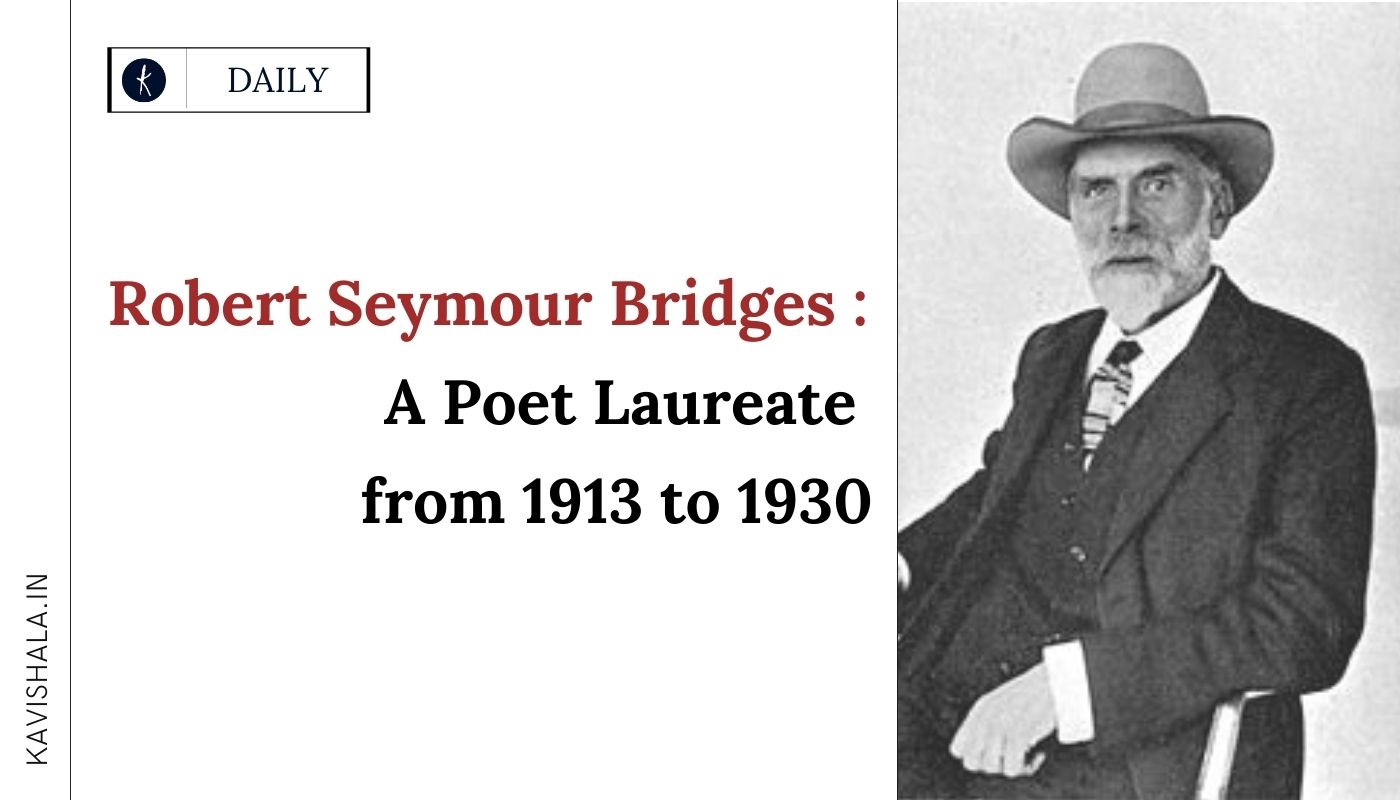
Poem :- "I Love All Beauteous Things"
I love all beauteous things,
I seek and adore them;
God hath no better praise,
And man in his hasty days
Is honoured for them.
I too will something make
And joy in the making!
Altho' tomorrow it seem'
Like the empty words of a dream
Remembered, on waking.
- Robert Seymour Bridges
Explanation : Poet writes that he admires Nature which god has created but, never been praised for it completely. People instead of praising god for his creation honours men who are just in haste. And, he himself will also create something in this world one day but, he feels like that he will not be praised for that too as if it is a dream whose selected words could be remembered and not the whole dream.
About Robert Seymour Bridges :-
Robert Seymour Bridges Born on 23 October 1844 at Walmer in Kent, Bridges lived During the high tide of Victorian England. He was an English poet noted for his technical mastery of Prosody and for his sponsorship of the poetry of his friend Gerard Manley Hopkins. Born into a prosperous family, Bridges went to Eton College and then to Oxford, where he met Hopkins. His edition of Hopkins' poetry that appeared in 1916 rescued it from obscurity. From 1869 until 1882 Bridges worked as a Medical student and physician in London hospitals. In 1881 After a serious illness and a winter spent in Italy in order To recuperate. Bridges retired from medicine and devoted the Rest of his life to literature. Bridges' literary In 1881 After a serious illness and a winter spent in Italy in order To recuperate. Bridges retired from medicine and devoted the Rest of his life to literature.
Bridges' literary career did not suddenly flower when He retired. In 1873, the year before he received his MB from St. Bartholomew's, Bridges published his first book of Poetry, entitled Poems. By 1881, the year he retired from Medical practice, he had published a poem in Latin on St. Bartholomew's Hospital, two more anonymous series of Poems, and an anonymous series of sonnets entitled The Growth of Love. This last publication was so popular that the two Anonymous series of Poems were subtitled "By the Author of The Growth of Love." Between 1883 and 1895 Bridges wrote most of his plays, The most noteworthy being Prometheus the Firegiver (1883), Nero, Part I (1885), Achilles in Scyros (1890), and The Return of Olysses (1890). These are generally closet dramas, And although Y
No posts
No posts
No posts
No posts

Comments